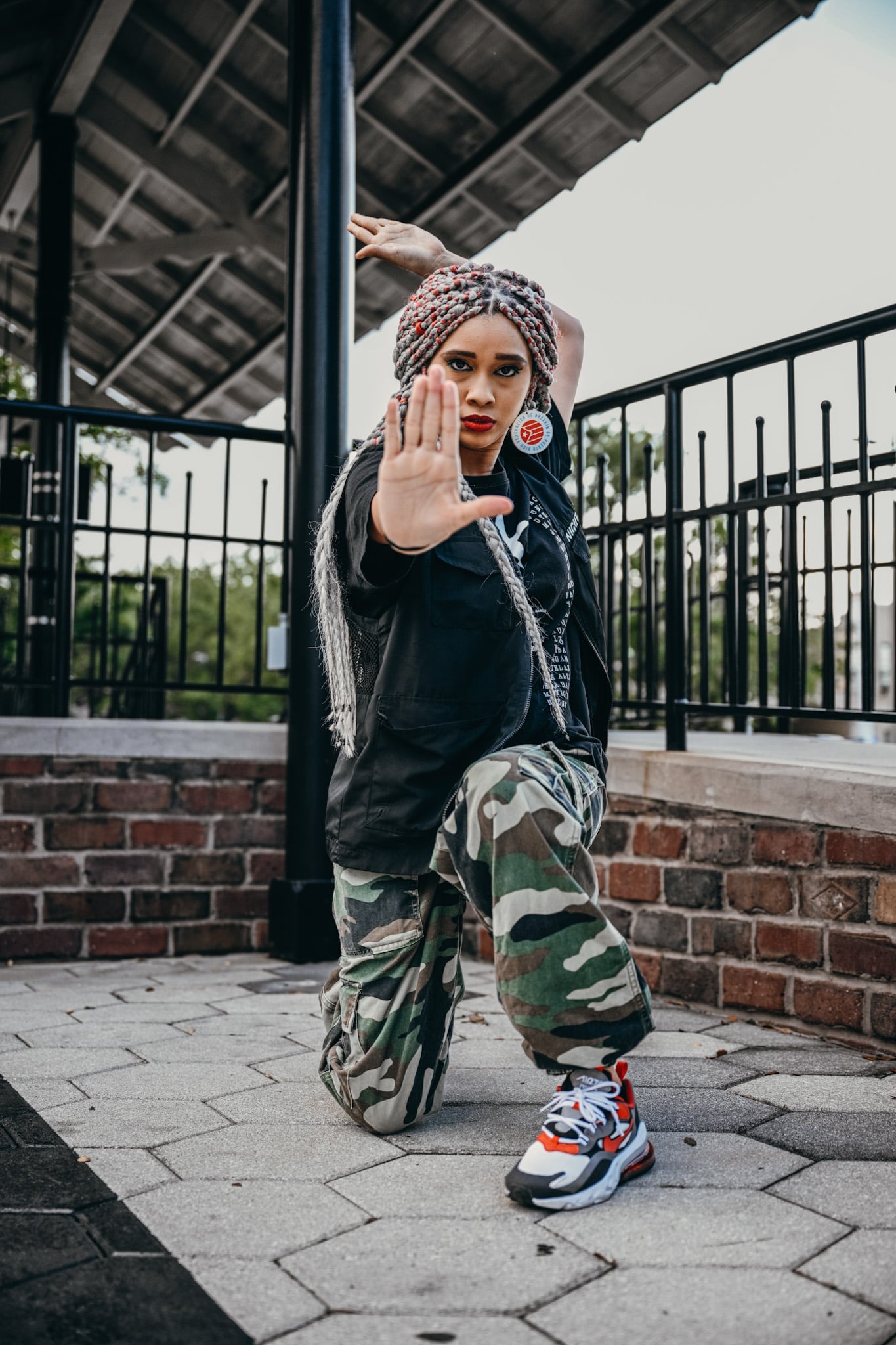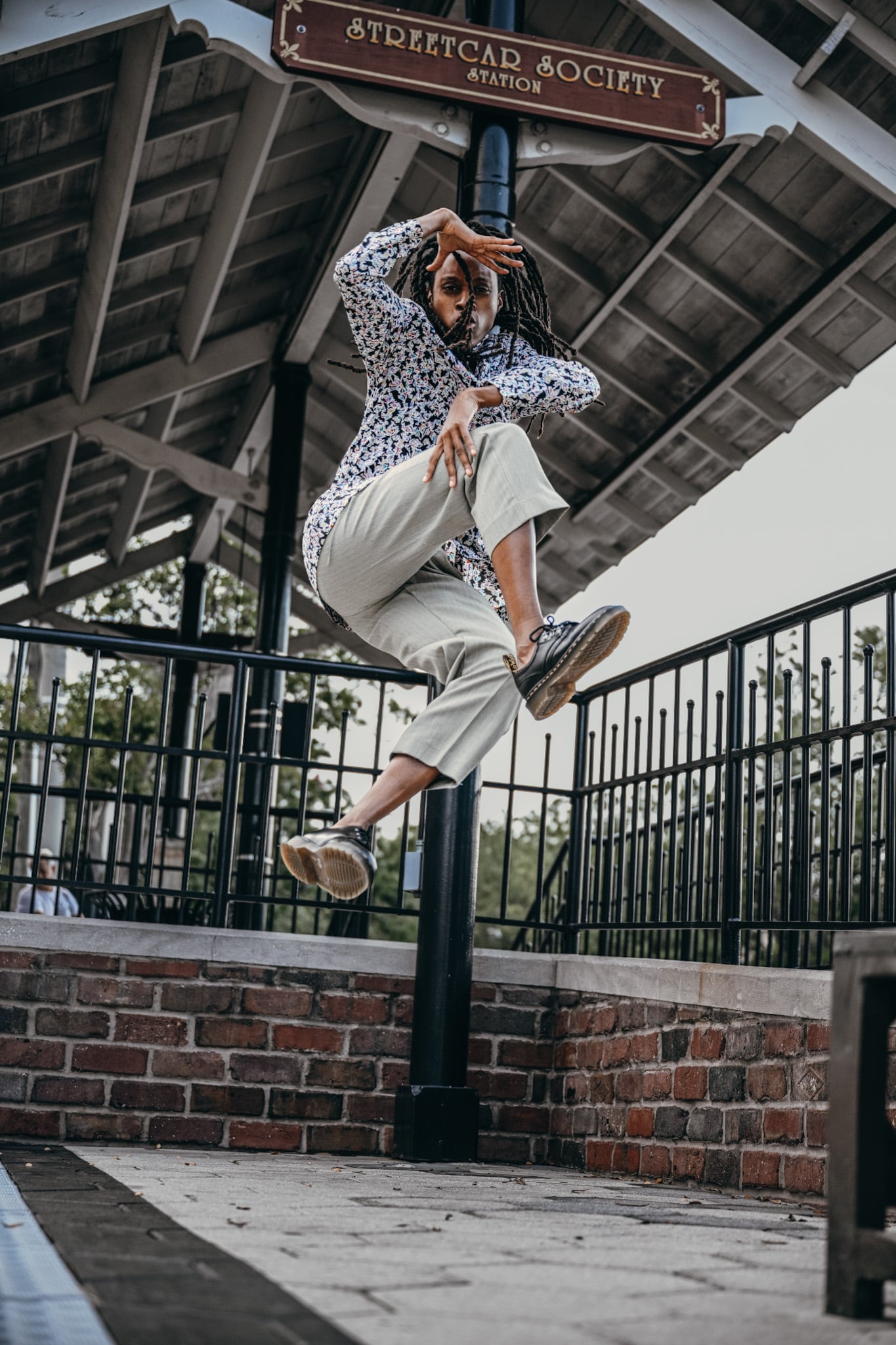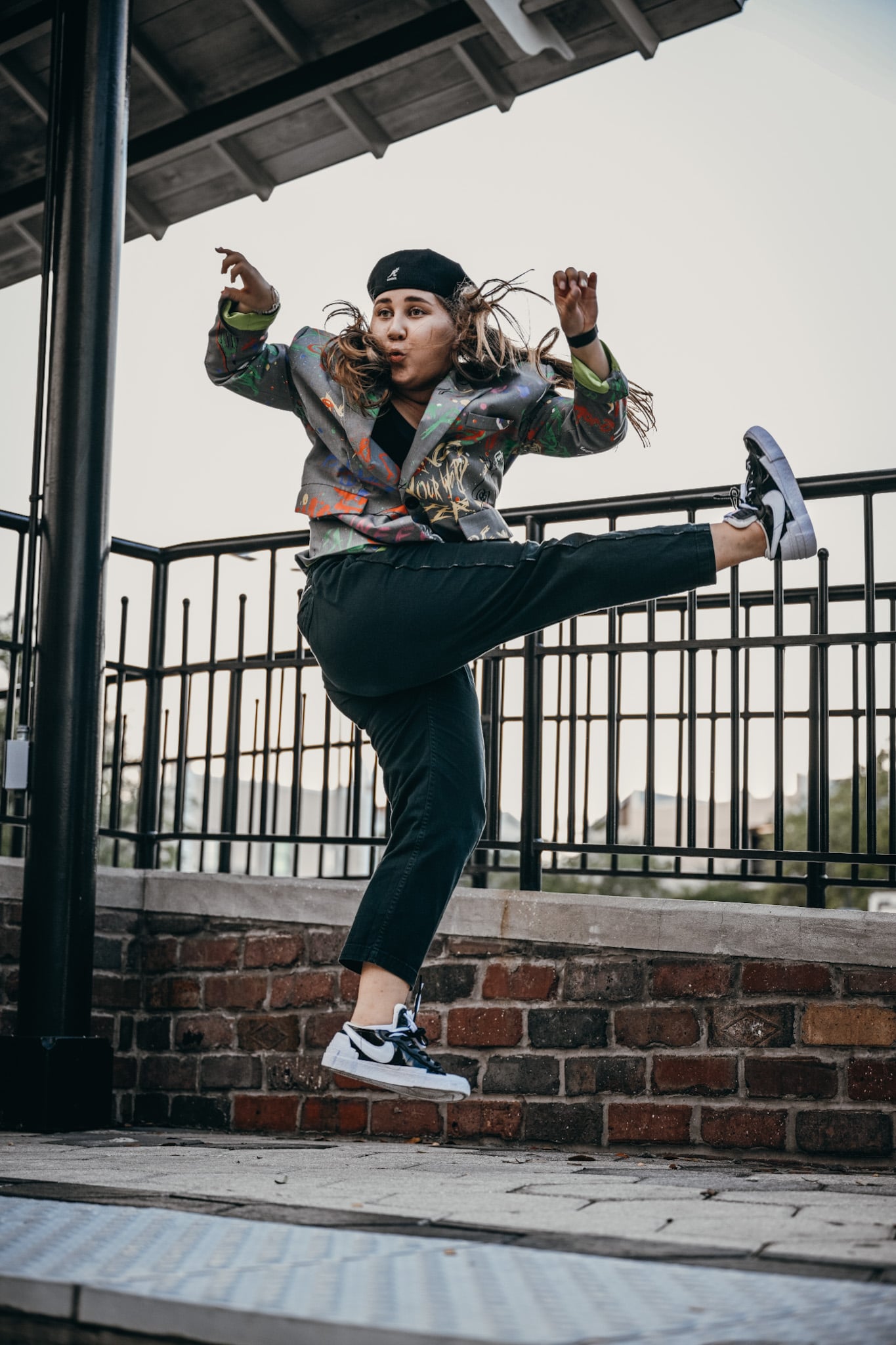How Street-Style Dance Helped 3 Artists Find Purpose, Community, and Themselves
- Being Outside Is Good For Your Body and Mind — Here’s Why - December 14, 2023
- The Chicest Bracelets for Women (All Under $100) - December 14, 2023
- Water Is Life — Here Are 11 Simple Ways to Drink More of It - December 14, 2023
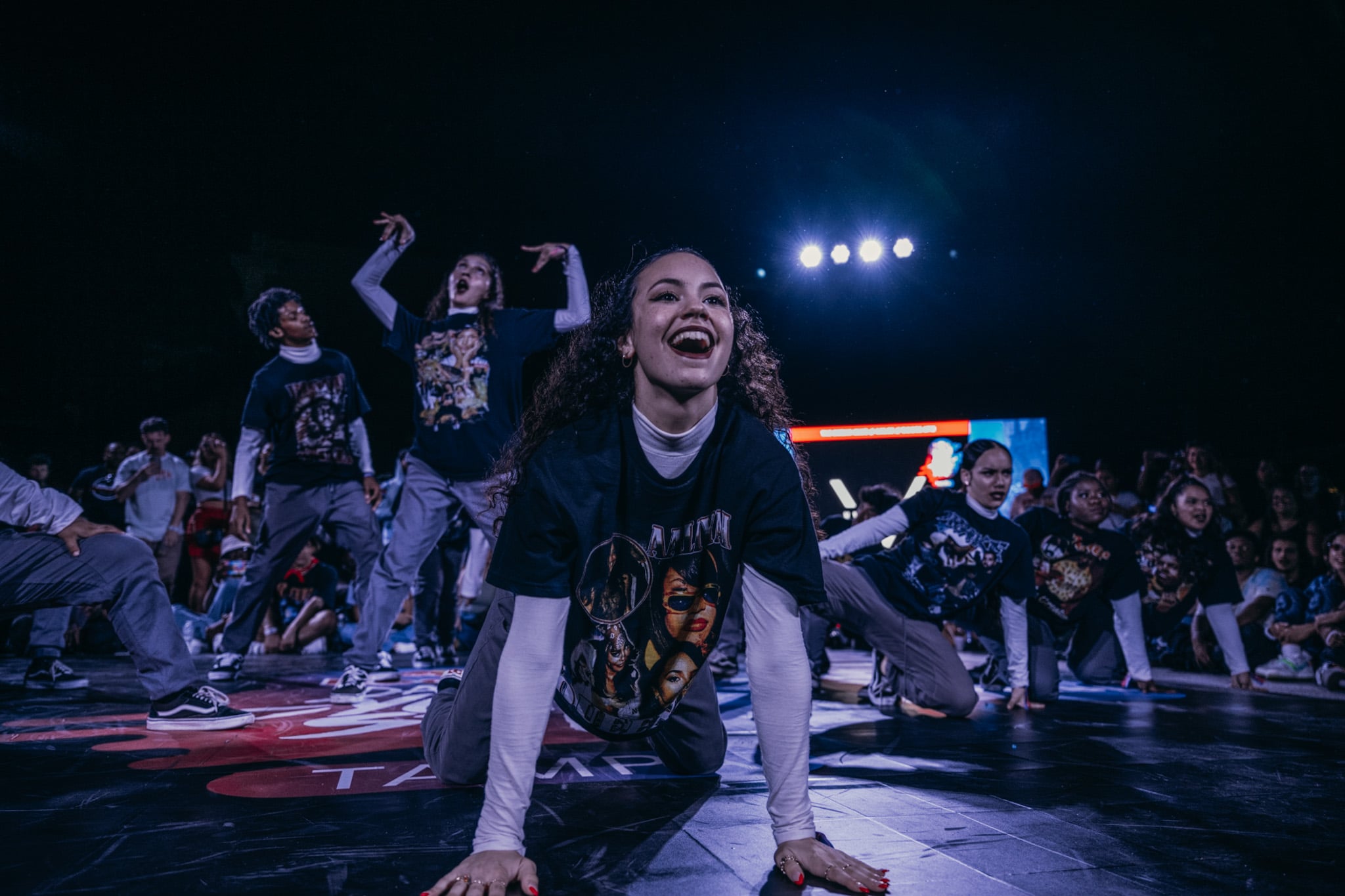
Image Source: Red Bull Media House
No matter your culture or background, movement is a language we can all understand. That’s one of the things that makes dance so appealing: it’s expressive, communicative, and, perhaps most importantly, universal.
For performers Madeline Rodriguez, Bianca Robinson, and Milana Mustafina, dance has done more than provide a creative outlet or even a way to connect with others — it’s changed and saved their lives. “I grew up in a bad neighborhood in Puerto Rico,” Rodriguez, whose dance name is Nightstorm, says. “Dance has protected me and kept me far away from that life. I’ve followed my dreams and it’s brought me here.”
At this moment, “here” is the Red Bull Dance Your Style Tampa Qualifier, where POPSUGAR had the opportunity to interview these three talented freestylers.
Brought together by a common passion, Rodriguez, Robinson, and Mustafina, along with 13 other artists from around the world, competed in the premier street dance competition on April 16. The bracket-style, dance-battle tournament highlighted styles from hip-hop to waacking to krumping to popping (and everything in between). Each performer brought their own culture to the stage, as well as a fiery energy that can only be described as empowering. In short, it was a big deal. The top competitors from all six qualifier events will advance to the Red Bull Dance Your Style National Finals USA in New Orleans later this month (unfortunately, Rodriguez, Robinson, and Mustafina did not).
The dance battles work like this: artists compete one-on-one to a spontaneous music set (no genre is off limits), and by holding up colored lights, the audience votes on who moves on to the next round. There’s no panel of judges, no planned choreography, and no preselected music — it’s all about embracing the moment and impressing the crowd.
Dancing under the lights on that warm Tampa evening, Rodriguez, Robinson, and Mustafina were undeniably in their element. Their impressive performances showcased just how profoundly dance has shaped their lives, both on stage and off. And while each one has faced her own unique adversaries and obstacles, all three hope to inspire a new generation and shine a spotlight on the healing powers of dance.
Madeline Rodriguez, aka “Nightstorm”
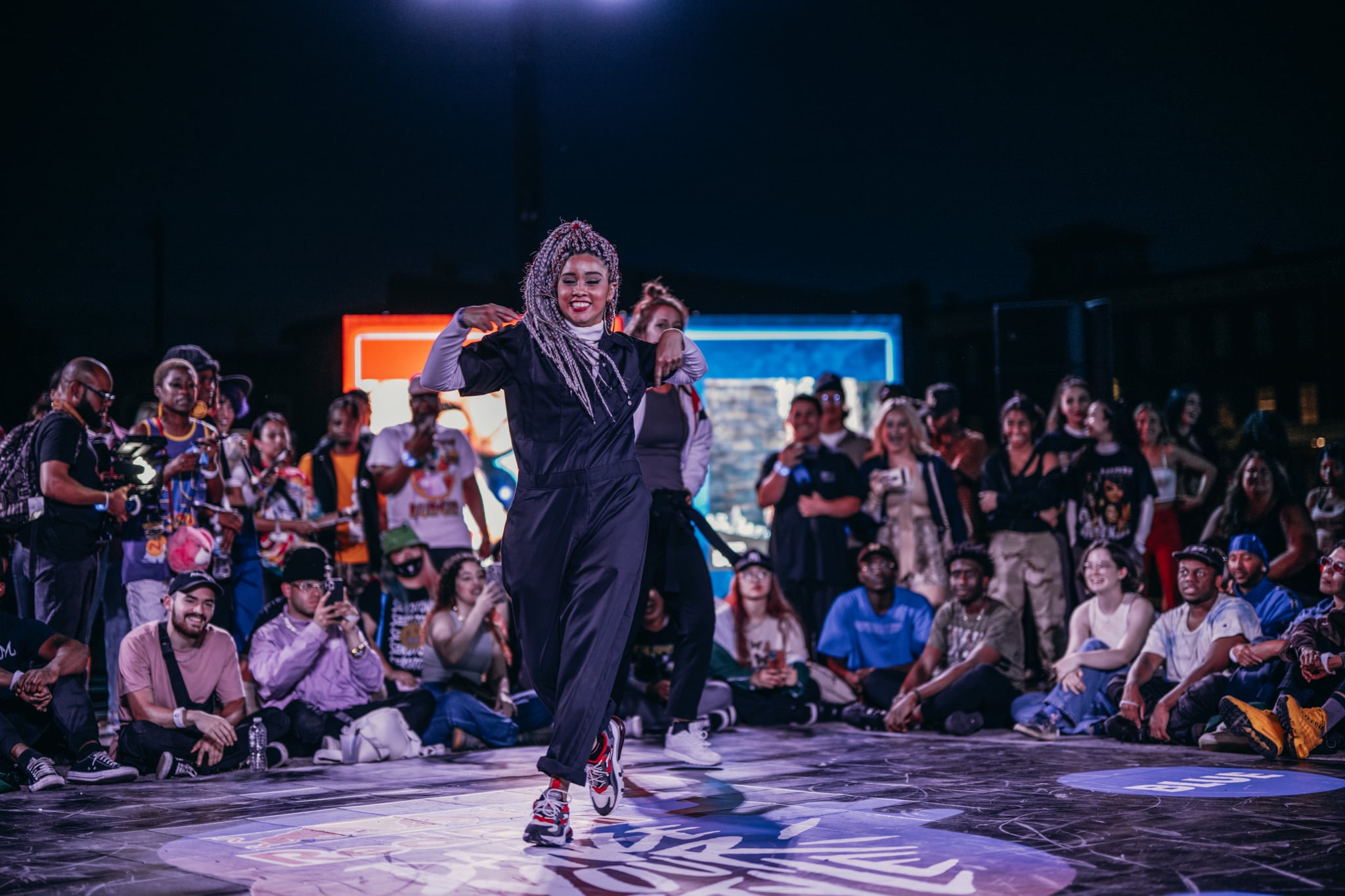
Image Source: Red Bull Media House
Growing up in southern Puerto Rico, Rodriguez, now 27, knew she wanted to dance immediately after seeing a group of street performers. At 18, she began her dance journey by joining a local crew called Generation X. While she instantly felt supported and accepted by the dance community, it took her parents and the rest of her family four years to get on board.
“My family did not support me at all,” Rodriguez says. “I’d go to practice and have to hide it from them.” She describes the situation as incredibly disheartening, especially because her family had their own opposing vision for her future. They wanted her to go to college and pursue what — in their eyes — would be a more stable career.
“I put everything I had into dance — including my sadness and frustration.”
“In the beginning, it was really tough,” Rodriguez says. “They didn’t want me to dance, but the situation ended up making me a stronger dancer, as well as a stronger person. I put everything I had into dance — including my sadness and frustration.”
In 2015, Rodriguez moved to Gainesville, FL, leaving her friends, family, and crew behind. “I told myself I couldn’t keep my dancing a secret anymore,” she says. “I said to my mom, ‘I have to go to Florida. I can dance there, and you can see how happy it makes me.’ Since then, I’ve shown my family what I can do, and they support me now. They see I have talent and love for it.”
Image Source: Red Bull Media House
While her family was sad to see her leave Puerto Rico and still miss her every day, Rodriguez says they understood why she needed to make the change. “In Puerto Rico, the living is hard, and it’s difficult to reach your dreams — at least where I’m from,” she says. “We don’t have the same resources that are available here in the US. I knew I had to meet more people and continue mastering my craft somewhere else if I wanted to come back to Puerto Rico one day and teach others what I’ve learned.”
Dancing makes Rodriguez feel like a superhero, which is the feeling she wants to help other people channel. Ultimately, she’d love to open her own studio and change lives in her community. “Dancing has helped me grow as a person and has taught me how to be more communicative,” she says. “I used to be so insecure and antisocial, but when I’m on stage, I come alive. I want to pay it forward and help young kids discover their own superheroes inside.”
Rodriguez is also passionate about lifting up her community as a whole and creating new outlets for growth and education. “When I moved to the US, I knew I could accomplish more here — the dance scene was dying over there,” she says. “I want to change that; I want to bring awareness and opportunities to Puerto Rico to help them grow stronger.”
It hasn’t been an easy road, but the privilege of representing Puerto Rico at the Red Bull Dance Your Style competition was a dream come true for Rodriguez. “Sometimes, things are hard at first — especially when you start at zero,” she says. “But you have to be able to see beyond the present and focus on the future. Any one of us can accomplish something great.”
Bianca Robinson, aka “Bee”
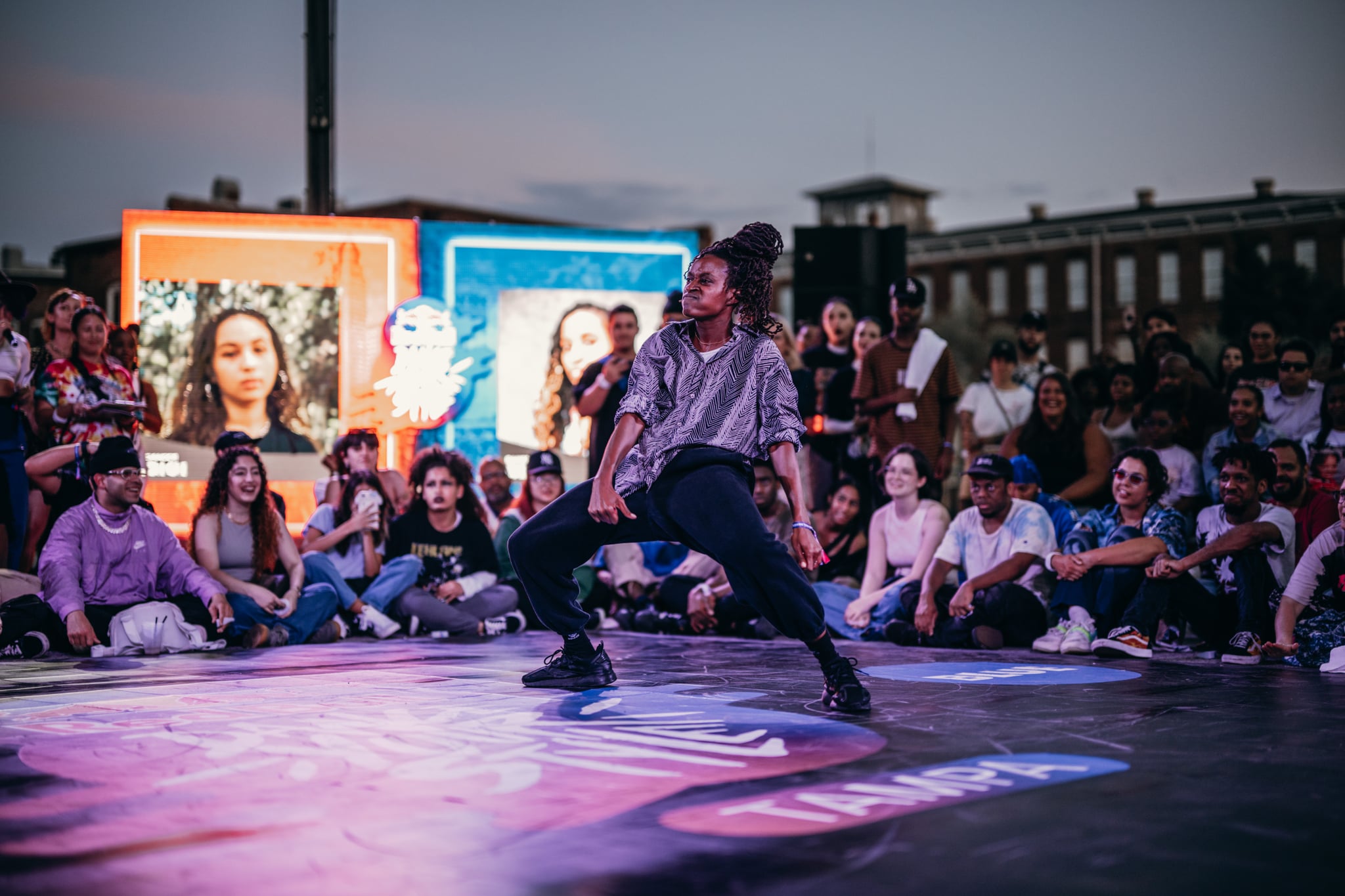
Image Source: Red Bull Media House
Unlike Rodriguez, Robinson — or Bee, as she’s known in the dance community — always had the support of her parents when it came to dance. For her, raising a family of her own is what’s been the biggest challenge.
“When I’m dancing, I feel free. It allows me to feel whatever it is I’m feeling and then let it go.”
At 33 years old, Robinson was the oldest competitor in Tampa. She was also the only mother. “Being married young and having a child in the first year of marriage was an obstacle,” she says. “I was still learning how to be a wife, and all of a sudden I was a new mom, too. I had to start thinking differently, because it wasn’t about me anymore.”
Born and raised in Miami, Robinson started dancing at age 11, but it wasn’t until she was around 16 that she knew it was her calling. She taught her first class at age 15, and in college, she joined her university’s hip-hop group. She picked up a part-time job after graduating, but she was still dancing “nonstop,” she says. “I teach a lot, but I’ve also been in music videos. I’ve done choreography for different studios, like competition pieces and things like that. That’s mainly where my path has taken me, but I would like to do a tour and dance on stage with a big artist. It’d have to be at the right time, though.”
Image Source: Red Bull Media House
After her first child was born, Robinson’s dance career was put on hold. Today, her kids are now 3 and 7 years old, and she still feels the pressures of being a working mom. While she’s thankful to be teaching dance and performing again, she describes her life as a balancing act — like being on a teeter-totter. She has her own dreams, but she also has very real responsibilities.
“My peers who don’t have kids can get a dance job, and it’s a no-brainer,” she says. “For me, I have to think, ‘Okay, if I take this job, how’s it going to affect me? How’s it going to affect my kids? My finances? The time away that we won’t get back?’ That’s what messes with my brain the most.”
It’s a feeling that working mothers everywhere know all too well — and a struggle that doesn’t have an easy solution. “I’m always at war with myself,” Robinson says. “Have I spent enough time with my kids? Is it okay to go do this thing? Are they going to feel like I was never around? Will they understand why I did what I did?”
These recurring thoughts are difficult, but Robinson is learning to live moment by moment — which is something dance has helped her do. “When I’m dancing, I feel free,” she says. “It allows me to feel whatever it is I’m feeling and then let it go. I hope as my kids get older, they understand that my dancing is passion-driven. It’s not about the money, it’s about where your heart is — what you’re willing to invest in, and what you want to share with others.
Milana Mustafina, aka “Milana Mango”
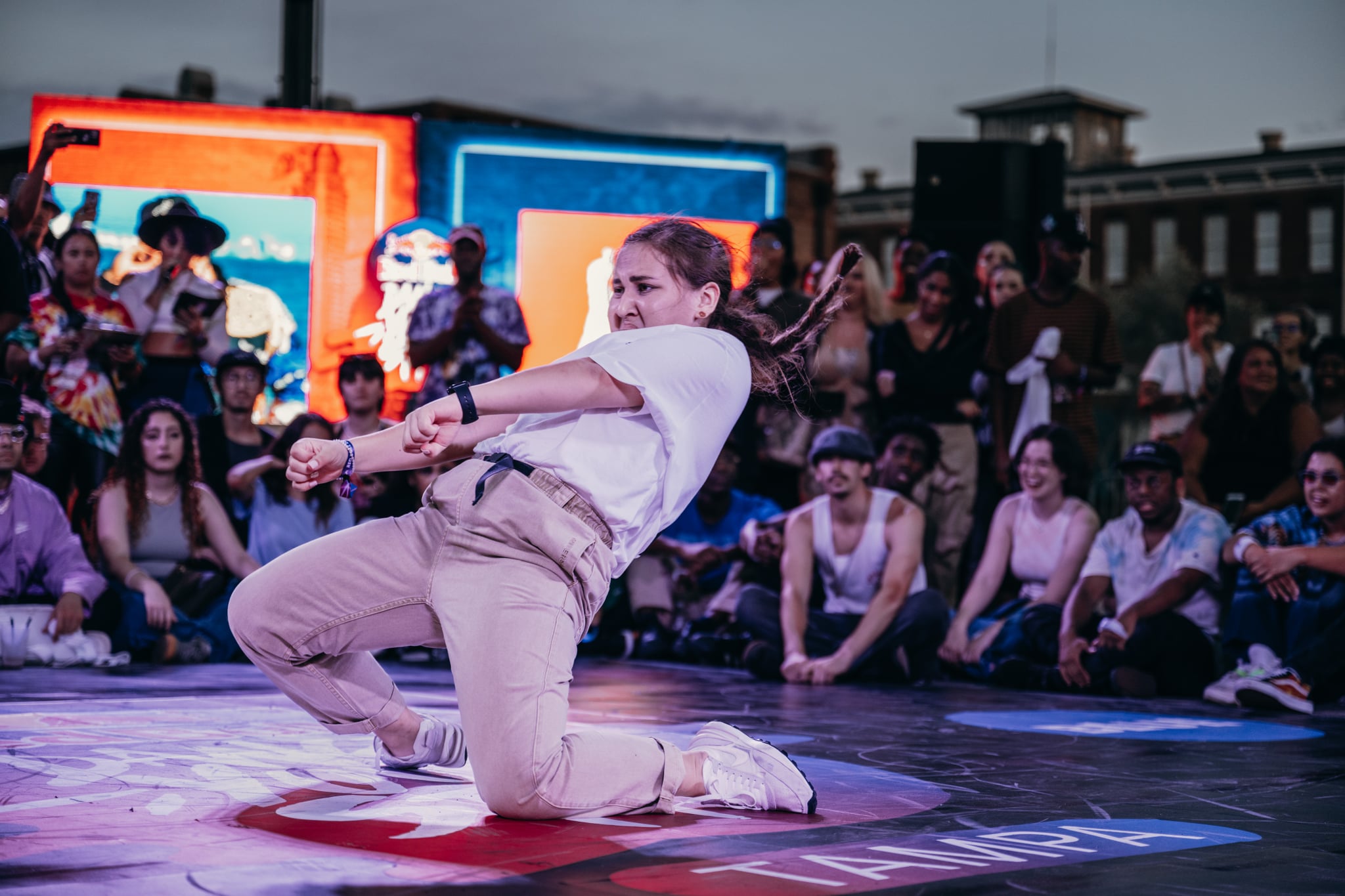
Image Source: Red Bull Media House
At the opposite end of the age spectrum is Mustafina, whose dance name is Milana Mango. At just 19 years old, Mustafina was the second youngest person to compete in Tampa. Faced with a new life in a new country (she moved from Russia to the US with her mom only two years ago), Mustafina overcame periods of extreme hardship with the help of dance. While she’s still discovering who she is, the creative outlet has provided her with much-needed structure and support while helping her come into her own.
When she left Russia with her mother, Mustafina left all other friends and family behind, essentially starting over. “So many new changes brought on a lot of stress,” she says. “Everything in my life changed, and it was hard. I was very down, very depressed.”
“Dancing is the key to everything that I have right now.”
Having danced in Russia, Mustafina knew it was a passion of hers. But it wasn’t until she attended the 2021 Red Bull Dance Your Style competition in Miami that it all clicked. “I was watching the dancers, asking myself what I wanted to do with my life. I realized I could either wallow in my mood or I could pull myself together, get out of the apartment, and go to a dance studio.”
Ultimately, it was the street-style dance community that really impressed and inspired Mustafina. “People here are so open, and they’re interested in helping you,” she says. “I manifested that I, too, would be part of it someday.”
Fast forward a year, and Mustafina is on the same Red Bull stage in Tampa. “I decided to go for it, and I’m so thankful that I did,” she says. “Dancing is the key to everything that I have right now.”
Of course, Mustafina’s success and happiness didn’t happen overnight. Back in Russia, she began dancing when she was six years old. In the beginning, she was doing classical ballet, but by age 12, she discovered street-style dance. “I remember thinking, ‘This is it. This is what I want to do.’ I love that the battle scene is all about living in the moment. Nothing else matters — not your age, not your gender, not your race, nothing.”
Image Source: Red Bull Media House
Before she found dance, Mustafina was a young gymnast in Russia. She started training at 3 years old but became discouraged at the age 6, when her coach announced that she would never amount to anything in the gymnastics world. “I felt a lot of pressure, and what she said made me sad,” she says. “But it was a blessing in disguise, because it led me to dance.”
Mustafina ended up winning her first battle in Russia just one year into practicing street style. “I was surprised,” Mustafina says. “I thought, ‘Well, at least I’m good enough for this. Maybe I can find myself through dance.'” It turns out that’s exactly what she’s doing — and she’s loving every minute.
“Dancing has given me confidence,” she says. “It’s shown me what I’m capable of, shown me parts of myself I didn’t know existed. When I’m dancing, I’m my truest, most vulnerable self.” When asked what her advice is for other young dancers, Mustafina stressed that it’s never too late to fight for your passion and invest in yourself.
“Don’t be afraid,” she says. “And don’t compare yourself with anybody else — your journey is your journey. I believe everything is going to work out for me the way it’s supposed to. And I have dance to thank for that.”
